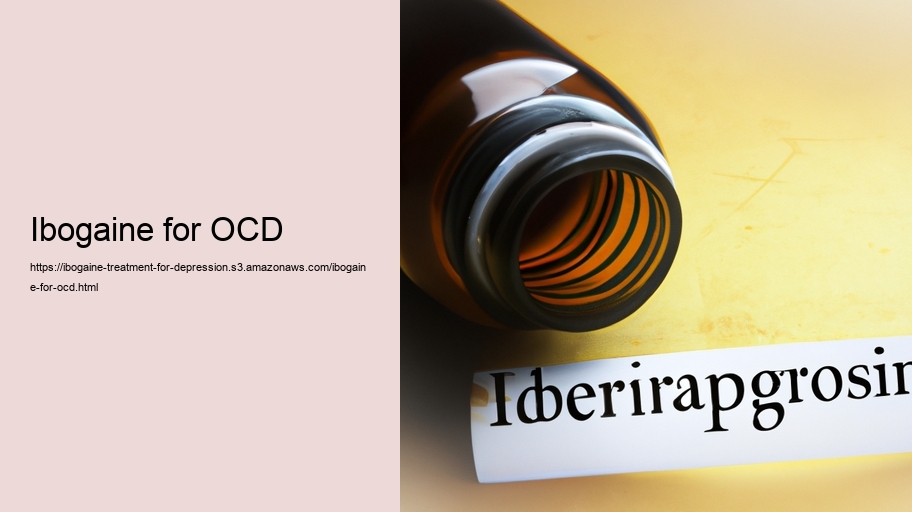Title: Exploring Ibogaine as a Potential Innovative Treatment for Obsessive-Compulsive Disorder
Introduction:
The quest for effective treatments for psychiatric conditions is an ongoing journey, ever-evolving with the expansion of scientific knowledge and discovery. Among the myriad of disorders that plague the human psyche, Obsessive-Compulsive Disorder (OCD) stands out as particularly relentless, characterized by intrusive thoughts and repetitive behaviors that severely affect individuals' quality of life. In recent years, a substance called ibogaine has sparked interest within the medical community as a potential therapeutic agent for various mental health conditions, including OCD. This essay delves into what ibogaine is, its historical use, how it could help those struggling with OCD, and the challenges faced in understanding its place in psychiatry.
What is Ibogaine?
Ibogaine is a psychoactive alkaloid naturally occurring in the root bark of the Central West African shrub Tabernanthe iboga. For centuries, indigenous cultures have used this plant in healing ceremonies and spiritual rituals. It wasn't until the 20th century that ibogaine's potential therapeutic properties were considered by Western medicine. Known for its hallucinogenic effects at higher doses, it has been studied primarily for its capacity to alleviate withdrawal symptoms from opiates and other substances.
Ibogaine and OCD:
The leap from addiction treatment to OCD therapy may seem vast; however, there are intriguing reasons why researchers are turning their attention towards ibogainine's utility beyond substance abuse disorders. The pharmacological profile of ibogaine is unique: it affects multiple neurotransmitter systems known to be involved in OCD pathophysiology, including serotoninergic, dopaminergic, glutamatergic pathways.
At moderate doses, ibogaine demonstrates neuroplasticity-inducing effects — essentially rewiring brain circuits — which may prove beneficial in breaking the cycle of compulsions and obsessions characteristic of OCD. Additionally, anecdotal reports suggest that experiences induced during ibogainine sessions can lead to profound psychological insights and decreased anxiety levels; both outcomes might provide symptomatic relief for individuals with OCD.
Challenges and Considerations:
Despite these exciting prospects, significant hurdles remain before we can fully embrace ibogainine as an acceptable treatment option for OCD. Primarily among these concerns is safety; iboga derivatives have been associated with potentially serious cardiac side effects due to their influence on heart rhythm. Moreover, given its status as a Schedule I substance in many countries (including the United States), legal barriers also pose a significant challenge to conducting comprehensive research studies necessary to establish efficacy and safety profiles.
Furthermore, ethical considerations arise when dealing with any psychedelic-assisted therapy — informed consent must be meticulously managed due to altered states of consciousness experienced by patients during treatment sessions. And while early phase clinical trials offer hope through controlled settings under expert supervision ensuring patient safety becomes paramount if such treatments were made widely available.
Conclusion:
In conclusion , while preliminary findings hint at promising results regarding usingiboga-derived compoundslikeiboga fore treatingconditions likeOCD,thejourneytowardsmainstreammedicalacceptanceistortuousandfraughtwithcomplexities.Still,itcannotbedeniedthataswecontinuetoseekbetterwaysalleviatesufferingcausedbymentalhealthdisorders,novelapproachesmustbeexplored.Iboga’scapacitytoinduce lastingneurologicalchangespresentstemptingpossibilityforthosewhose livesareconstrainedbythenarrowconfinesofobsessionsandcompulsions.Iftheresearchcommunitycannavigatethemurkywatersoflegalrestrictionsandsafetyconcerns,IboganinemayonedaystandasavanguardinthefightagainstOCD.Butuntilsuchtime,skepticismremainssensible,andhopefulanticipationmustbetemperedwithscientificrigorandethicalprudence.Nonetheless,theexplorationofiboganinefortreatingOCDisatestamenttohumankind’seternalpursuitofhealingandliberationfrommentalsuffering—aquestwhich willundoubtedlycontinueuntileffectivecuresforallcanbefound.
